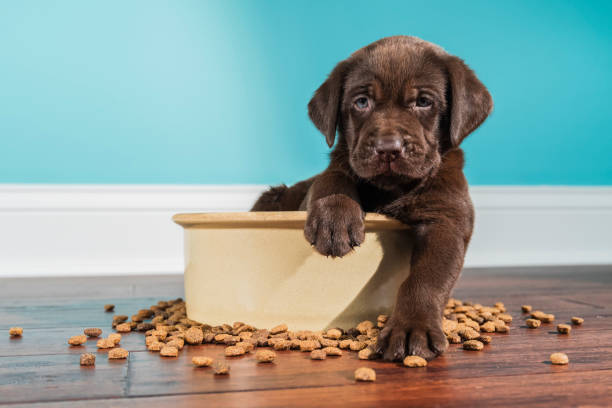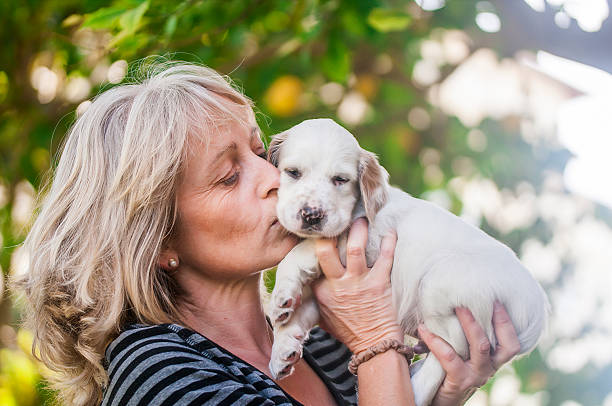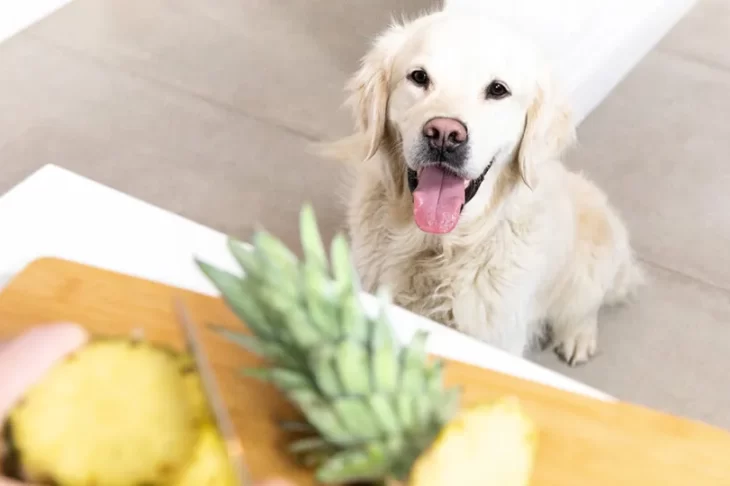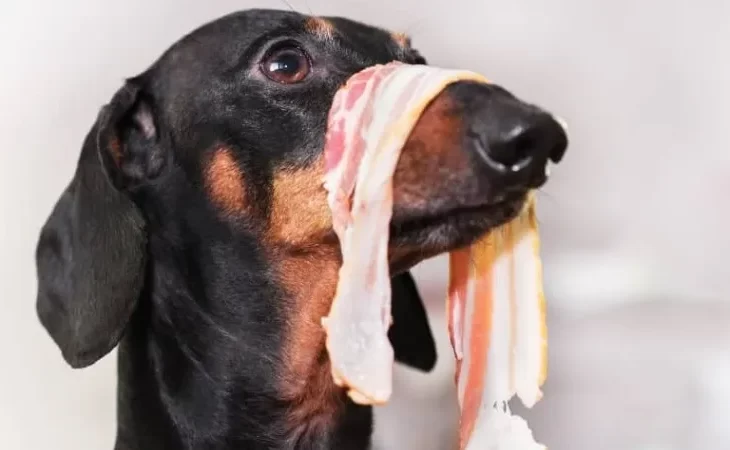
8 Week Old Puppy Not Eating: Is It Normal?
Similar to humans, it’s common for dogs to have occasional appetite loss. However, if your dog is refusing to eat, it can indicate a more serious issue. Veterinarian care is required for any rapid decrease of appetite that is abnormal for your dog and persists for more than a meal or two—sooner if your puppy exhibits symptoms of illness.
An 8-week-old puppy shouldn’t ideally go without food for more than a few hours. Until the puppy is 12 weeks old, a feeding regimen of 3 to 4 meals per day should be followed.
Followings will give a thorough answer to whether is it normal that an 8-week-old puppy not to eat.
Table of Contents
Common Reasons For 8-Week-Old Puppy Not Eating
Pickiness
Some picky puppies acquire preferences for particular foods and will only eat those items. Your dog learns how to get its way when you give in and give it the food it wants. 2 Using “tough puppy love” techniques may persuade your puppy to eat your preferred food when it is time for feedings if your veterinarian has determined that it is otherwise healthy.
Digest Disorders
Dogs have a reputation for consuming objects they shouldn’t. Unfortunately, many dog owners purposefully offer their dogs treats and “snacks” that aren’t appropriate for them to eat. Some snacks and snacks will result in dyspepsia, obesity, and subsequently begging, whether they are taken by your puppy or given out for free by you. They might even make your puppy reject the balanced, healthier dog food they ought to eat!
Giving dogs insect-proof medication at home and educating them not to battle the waves will significantly lower the likelihood that they will make their own food. Even if the two of you don’t engage in any “bad” behavior, some dogs may find their meal to be overly rich, and each dog will react to certain foods differently.
Your puppy is at risk of dehydration if they have diarrhea for more than 12 hours. Dehydration is a possibility if your puppy is also throwing up.
High Stress And Temperature Levels
Stress, being left at a kennel, or a change in an owner’s work schedule that causes separation anxiety can all cause your pet to lose their appetite. Even the stress of having guests over could cause anorexia. A pet’s appetite can also be killed by extreme outside temperatures.
Diseases, Insects, And Teething

One of the most prevalent symptoms of disease in dogs is anorexia, which, if an infection is present, may also include a fever. Anorexia is brought on by infectious diseases that might be fatal, such as parvovirus. Anorexia can also be brought on by distemper and other, less serious illnesses such as upper respiratory infection or intestinal parasites. Even teething can cause a puppy to be reluctant to eat. In other instances, a puppy may not want to eat due to stomach pain brought on by an ingested foreign body (such as a swallowed toy or piece of trash).
Before attempting any methods to induce your puppy to eat if your dog’s anorexia persists for more than a few meals, be careful to have your veterinarian rule out any ailments.
Anxious Things
Humans frequently alter their eating patterns when under stress. According to Preventative Vet, dogs might behave the same way. Consider any potential sources of your dog’s anxiety. Typical stressors for puppies include:
Another Animal:
Maybe you already have a pet in your family. Your newborn child might find the other animal frightening.
Alterations To Routine:
You could believe your pet has adjusted well if you’ve kept her for a long. But perhaps you’re returning to the office after working from home. Your puppy may be eating less as a result of these changes since they are stressful.
A New Home:
Dogs typically require a day or two to acclimate to their new surroundings. More significantly, puppies and tiny breeds should feed often. Please consult your veterinarian if your puppy hasn’t been fed in a day between the ages of 8 and 12 weeks and is acting quietly. If your puppy leaps around like a lunatic, he might come back to eat once he gets used to the new surroundings and all the distractions.
Ask others who have experience raising dogs about the style of bowl or plate they use, when to feed the dog, and whether the dog is a social or autonomous eater to determine their feeding habits. Your new furry friend will feel more comfortable at supper if you can match these conditions.
Was I Supposed To Be Worried If 8 Week Old Puppy Not Eating?
Losing interest in a meal isn’t a big deal as long as your dog behaves normally in other situations. However, any rapid decrease in appetite that is out of the ordinary for your dog and lasts for more than a meal or two necessitates veterinary care—sooner if your puppy exhibits symptoms of illness.
How Long Can An 8-Week-Old Puppy Not Eat?
An 8-week-old puppy shouldn’t ideally go without food for more than a few hours. Until the puppy is 12 weeks old, a feeding regimen of 3 to 4 meals per day should be followed.
Read about: Dogs Are Banned From Which Continent? Why? – Better Doggy
What Can I Do If 8-Week-Old Puppy Not Eating?
There are various actions you may do to assist your young child is starting to eat again. Experts advise you to:
Visit A Veterinarian
It’s critical to rule out underlying reasons such as infections, GI issues, and parasites. Medication or brief dietary adjustments can frequently solve these issues. They can worsen if untreated, though. Additionally, your veterinarian might offer advice on how to promote eating.
Give It Time
Your puppy might just need some time if she’s having problems adjusting. Be patient with her and make her as at ease as you can. She can feel at home with a nice crate, entertaining toys, and set playtimes.
Warm The Food
Puppies have picky eating habits. It could be beneficial to warm up their food, especially if you are feeding them wet food. You can learn your pet’s preferences through trial and error.
Change Dog Meals Gradually
If you must switch diets, experts advise doing so gradually over a 10-day period to give puppies time to acclimate. Use roughly 10% new food and 90% old food on the first day, then gradually increase from there.
Blend It Up
If your pet is having problems eating, try adding some table food, like peanut butter or chicken broth. Check the peanut butter to be sure it doesn’t include xylitol, which sugar-free varieties frequently do. Trying a combination of canned and dry food rather than just kibble may also be beneficial.
Amusing Meals To Eat
You and your puppy shouldn’t have anxiety over food. Try adding puzzles or food dispensers to the experience to make it more enjoyable.
Create A Routine
Puppies, like some people, may benefit from routines. It gives them a sense of what to expect, which may be especially useful if your dog is anxious. Feeding your puppy at the same time every day can help you establish a mealtime schedule.
Limit Treats
Pet parents may over-reward their puppies with delectable food as a result of training (and the general charm of a pet). However, you might want to cut back on the treats if your puppy isn’t eating.
Summary
Being hungry is crucial for growing puppies, therefore when they refuse to eat, we get more concerned. The article gave more information on age-specific causes of loss of appetite and how to help your 8 week old dog.




